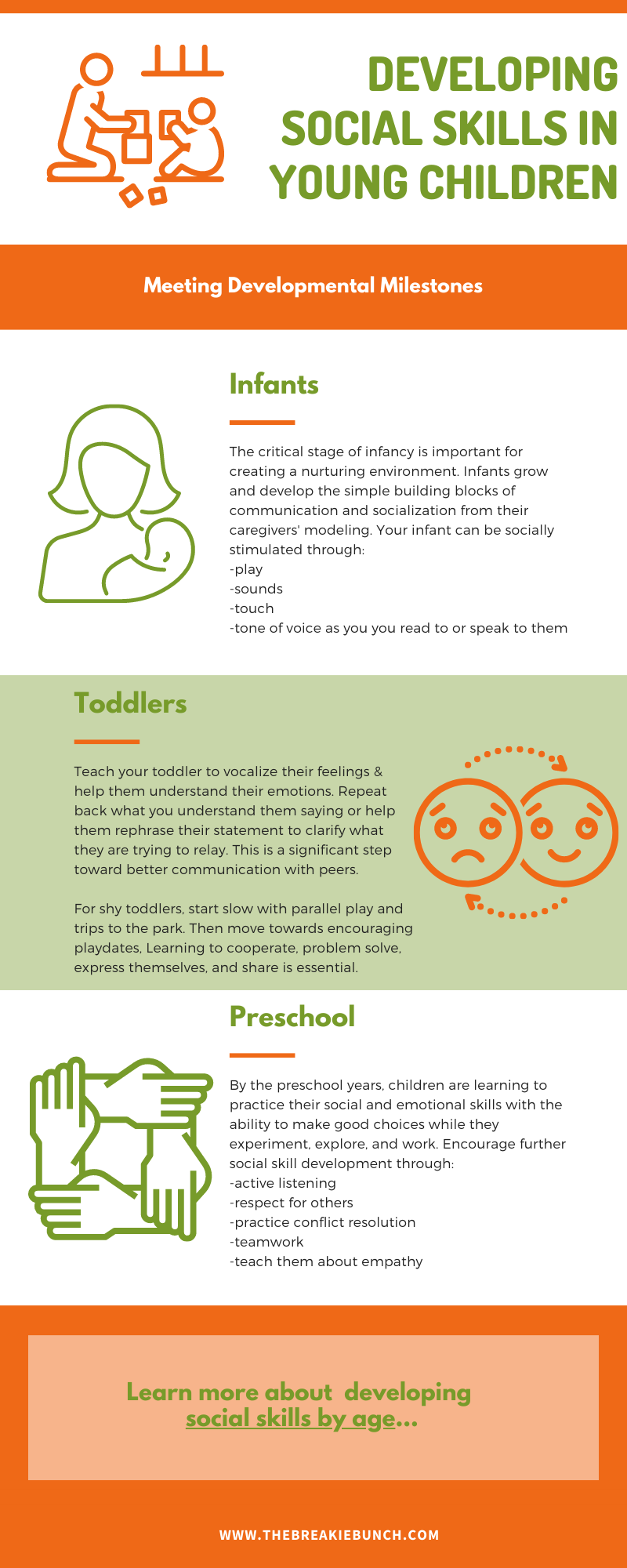Top Tips for Developing Social Skills in Toddlers
Top Tips for Developing Social Skills in Toddlers
Early childhood is a pivotal period for social development. A toddler’s ability to interact, communicate, and navigate social situations sets the stage for future success. Unfortunately, many parents struggle to identify and effectively address their toddler’s social challenges. This article provides a roadmap to help you understand the importance of social skills development in toddlers and equip you with practical strategies to foster social interaction. We’ll explore key aspects of social skills, common challenges, and actionable steps to promote these skills in your toddler. We will cover several practical tips that will assist you and your child in improving their ability to interact with others, thus developing stronger social connections. The structure will focus on understanding the importance of social skills, identifying common challenges, and then offering practical solutions.
Understanding the Importance of Social Skills in Toddlers
Building Blocks for Future Success
Social skills are fundamental to a child’s well-being and future success. These skills encompass the ability to communicate effectively, resolve conflicts peacefully, empathize with others, and build positive relationships. A toddler who develops strong social skills is better equipped to navigate friendships, teamwork, and leadership roles later in life. Toddlers are like little sponges; they soak up the social norms around them. Positive social interactions help them feel secure and develop the crucial confidence necessary for growth. According to the National Association for the Education of Young Children, social-emotional development forms the foundation for all other learning and development.
Related Post : How to Stay Organized in Middle School
Common Challenges in Toddler Social Development
Many toddlers face unique challenges in developing their social skills. Shyness, fear of new situations, difficulty expressing emotions, and a lack of understanding of social cues are common concerns that parents face. Toddler social interaction can be affected by temperament. Some toddlers are naturally more outgoing, while others may be more cautious or shy. It’s crucial to recognize these nuances and tailor our interactions to meet the individual needs of each child.
Strategies for Fostering Social Skills in Toddlers
Creating Opportunities for Social Interaction
Creating opportunities for positive social interactions is vital for a toddler’s development. Enroll your toddler in playgroups, invite friends over for playdates, or take them to toddler classes. Observing other children interacting can provide valuable learning experiences for toddlers as they see how to communicate and interact with peers. Group activities and playdates are important in helping them develop a wider range of social skills. By exposing toddlers to a variety of social situations, we help them develop more comfortable and resilient social skills.
Modeling Positive Social Behavior
Children learn by observing. Model positive social behaviors by demonstrating effective communication, empathy, and conflict resolution. Show your toddler how to share, take turns, and express emotions appropriately. This modeling provides a vital learning opportunity for your toddler. Talk through social situations with your child to show them how to navigate them successfully. Remember, your toddler will eventually pick up your best traits. Use real-life examples to illustrate how to act in specific social situations.
Encouraging Emotional Expression
Recognizing and Validating Emotions
Toddlers often struggle to understand and express their emotions. Help them identify and label their feelings by using words like ‘happy,’ ‘sad,’ ‘angry,’ or ‘scared.’ Validate their feelings, even if the emotion isn’t one that you necessarily agree with. This is crucial for building emotional intelligence. Empathize with your toddler, and let them know that it’s okay to feel a variety of emotions. Create a safe space where your toddler can express themselves without judgment.
Practical Activities for Emotional Expression
Engage in activities that encourage emotional expression. Read books about emotions, use puppets or dolls to act out feelings, or play games that involve expressing different emotions. Make use of flashcards and visual aids in your emotional learning sessions. Encourage healthy emotional expression. Try role-playing scenarios to help your child identify emotions in others as well as themselves.
Promoting Effective Communication
Building Vocabulary and Communication Skills
Expand your toddler’s vocabulary by using descriptive words and engaging in conversations. Describe what you’re doing and what you’re seeing. Ask open-ended questions to encourage responses and promote communication. Help your toddler learn to express their needs and wants effectively. Narrate your day and create opportunities for your toddler to engage in conversational turn-taking.
Resolving Conflicts Respectfully
Teaching Conflict Resolution Skills
Disagreements are a normal part of toddler social interactions. Help your toddler resolve conflicts by discussing possible solutions together. Guide them to understand that taking turns is a positive skill and helps maintain relationships. Help them express their feelings and needs in a calm and respectful manner. Role-play scenarios of conflict resolution using dolls or stuffed animals to help your child practice healthy social skills.
Patience and Consistency
Importance of Consistency
Developing social skills takes time and patience. Consistent effort and support are crucial. Remember to praise and celebrate each small step forward, rather than focusing on the shortcomings or perceived delays. Toddlers learn to build connections and develop their social skills at their own pace. Stay patient as your toddler explores and grows.
Seeking Professional Guidance
Importance of Professional Support
If you have concerns about your toddler’s social development, don’t hesitate to seek professional guidance. Consult a pediatrician, child psychologist, or therapist. A professional can provide valuable insights and support tailored to your child’s individual needs and provide a specific plan.
Creating a Supportive Environment
Building a Secure Base
A supportive environment plays a critical role in fostering social development. Make sure your toddler feels loved, secure, and understood. A secure base will empower them to take risks and try new things.
Celebrating Milestones
Recognition and Reward
Celebrate the milestones of your toddler’s social development. Recognition and reward can motivate them to continue practicing and improving their skills. Focusing on positive behavior motivates and reinforces the desired actions. Remember to be supportive and encouraging as your toddler builds their confidence.
In conclusion, fostering social skills in toddlers is a crucial aspect of their development. By implementing these strategies consistently and with patience, parents and caregivers can equip their little ones with the essential social skills needed for success in all aspects of life. Continue to observe, adapt, and celebrate each small step forward. Remember, every child develops at their own pace. If you are concerned about your child’s social development, consult a pediatrician or child development specialist. Seeking professional guidance can provide valuable insights and support tailored to your child’s individual needs.
Share this content:




Post Comment